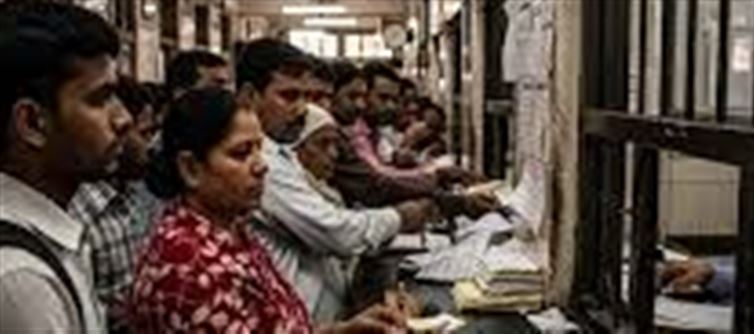
With the festival season approaching, many people are planning their travel, especially during Chhath and Diwali. If you are thinking of booking train tickets, you should be aware that Indian Railways is implementing important changes in the ticket booking system, starting October 1, 2025. One of the major updates is that Aadhaar verification will now be mandatory for general reservations as well, which was previously required only for Tatkal bookings.
What’s Changing in the Ticket Booking System?
1. Aadhaar Verification for General Reservations:
o Aadhaar-based verification will now be a part of the general ticket booking process. This means that, moving forward, you will need to link your Aadhaar card with your IRCTC account for booking general tickets. This was previously required only for Tatkal tickets, but now even regular bookings will need this additional level of verification.
2. Why the Change?:
o The move is part of the government’s initiative to make the booking process more secure and transparent, ensuring that only verified passengers can book tickets.
o It is also a step toward curbing ticket frauds and black marketing of train tickets, which has been a common issue, particularly during the festive season when demand for train tickets is at its peak.
How Does Aadhaar Verification Work for train Ticket Booking?
· Link Your Aadhaar to IRCTC:
o If you haven’t already done so, you will need to link your Aadhaar number to your IRCTC account. This can be done during the account creation or account update process on the irctc website or app.
· During Booking:
o When you attempt to book a train ticket online, the system will prompt you for Aadhaar verification. You will need to input your Aadhaar details, and the system will verify your identity.
· Verification Process:
o Once you enter your Aadhaar details, a one-time verification will be sent through a OTP (One-Time Password) to your registered mobile number. After verifying the OTP, your identity will be confirmed, and the booking process will proceed.
· Ticket Confirmation:
o Once your Aadhaar has been successfully verified, you can complete the ticket booking as usual, and your train ticket will be confirmed.
What Happens If You Don’t Have an Aadhaar Number?
· No Aadhaar, No Booking?:
o If you don’t have an Aadhaar card, you may face difficulties in booking tickets online. However, the government is likely to provide alternatives, such as offline booking through the reservation counters, where Aadhaar verification may not be compulsory.
· Exceptions for Non-Aadhaar Holders:
o There may be certain exceptions or provisions for people who are unable to provide Aadhaar due to valid reasons, but it’s advised to check with Indian Railways for any updates on this.
What Does This Mean for Travelers?
1. Faster Verification:
o With Aadhaar verification, the entire booking process is expected to be more secure and efficient, ensuring that only verified passengers get confirmed tickets.
2. Increased Accountability:
o The government aims to reduce scams and fraudulent ticket bookings. This will help in ensuring that genuine passengers get tickets at fair prices and prevent the resale of counterfeit or invalid tickets.
3. Prepare for Changes:
o If you plan to travel during peak seasons like Diwali or Chhath, make sure your Aadhaar details are updated and linked to your IRCTC account to avoid any last-minute hassles.
Conclusion
Starting October 1, Aadhaar verification will become mandatory for all train ticket bookings, including general reservations. This change aims to bring in more security and transparency in the train booking process and tackle issues like ticket fraud. Make sure to update your Aadhaar information on your IRCTC account well in advance if you’re planning to travel for the festive season to ensure a smooth and hassle-free booking experience.
If you’re unsure about the new process, it’s a good idea to check IRCTC’s official website or contact customer support for detailed guidance on how to link your Aadhaar and complete your booking.
Disclaimer:
The views and opinions expressed in this article are those of the author and do not necessarily reflect the official policy or position of any agency, organization, employer, or company. All information provided is for general informational purposes only. While every effort has been made to ensure accuracy, we make no representations or warranties of any kind, express or implied, about the completeness, reliability, or suitability of the information contained herein. Readers are advised to verify facts and seek professional advice where necessary. Any reliance placed on such information is strictly at the reader’s own risk..jpg)




 click and follow Indiaherald WhatsApp channel
click and follow Indiaherald WhatsApp channel